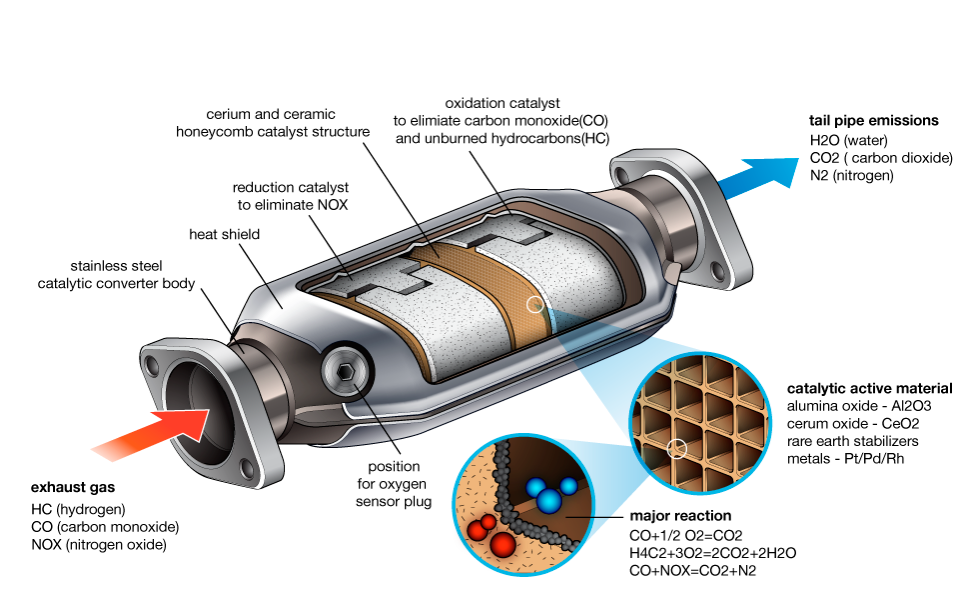Along with the many other unanticipated things this last year has brought, we have seen a rise in cars coming into the shop due to catalytic converter theft. In Denver alone, the rate has risen by 1,600% from just 15 reports of theft in 2019 to 257 in 2020, a trend that is likely to continue (The Denver Post, published 2/18/21).
A catalytic converter (pictured below) is a required part of any gas-powered vehicle’s exhaust system. Its purpose is to break down harmful pollutants from your vehicle’s engine. The catalytic converter functions by running engine exhaust through high temperatures and contact with rare earth metals, prompting chemical reactions that break down (and make safer) the pollutants that are released into the air.

To steal a catalytic converter it requires getting under a car and sawing the part off (admittedly, no easy task). So why are these parts being stolen with such frequency? Well, worldwide, as tighter emission regulations seek to improve air quality, the demand for catalytic converters (and the finite precious metals essential to their function) has skyrocketed. The precious metals inside the converters include platinum, palladium, and rhodium, among others. The cost of palladium has surged in recent years- up 500% from $500/oz five years ago to a high of nearly $2,500/oz earlier this year. For reference, the price of gold is currently <$1800/oz.
So, how will you know if your catalytic has been stolen? Unfortunately, you can’t miss it: with your engine’s exhaust unrestrained, it will make a loud roaring sound that will get louder each time you push the pedal. Hopefully, this doesn’t happen to you, but if it does, know you are not alone.
Theft of catalytic converters is a costly and time-consuming problem to remedy because finding the part can be difficult. The most sought-after catalytic converters are those on the Toyota Prius (due to their slightly higher concentration of precious metals). This has created a backorder of over 9000 Prius catalytic converters nationally. This means, if you have your catalytic converter stolen, it will likely sit in the shop for some time as the rare part is hunted down.
Tips for deterring converter theft include parking in a garage (if you have one), making sure to park in well-lit areas or utilize a motion detection floodlight, and if your car has to sit for a very extended time, consider deflating the tires to prevent thieves from being able to climb under the vehicle. Try as you might, you can never prevent a determined thief; one of our customers had their catalytic converter stolen in broad daylight while parked at their busy work parking lot.
If you want to learn more about this national trend, click here.
Your team at Addison is wishing you (and your catalytic converter) well.


